Yakuza: Like A Dragon PS4 Review
Written by ABC AUDIO on June 28, 2022
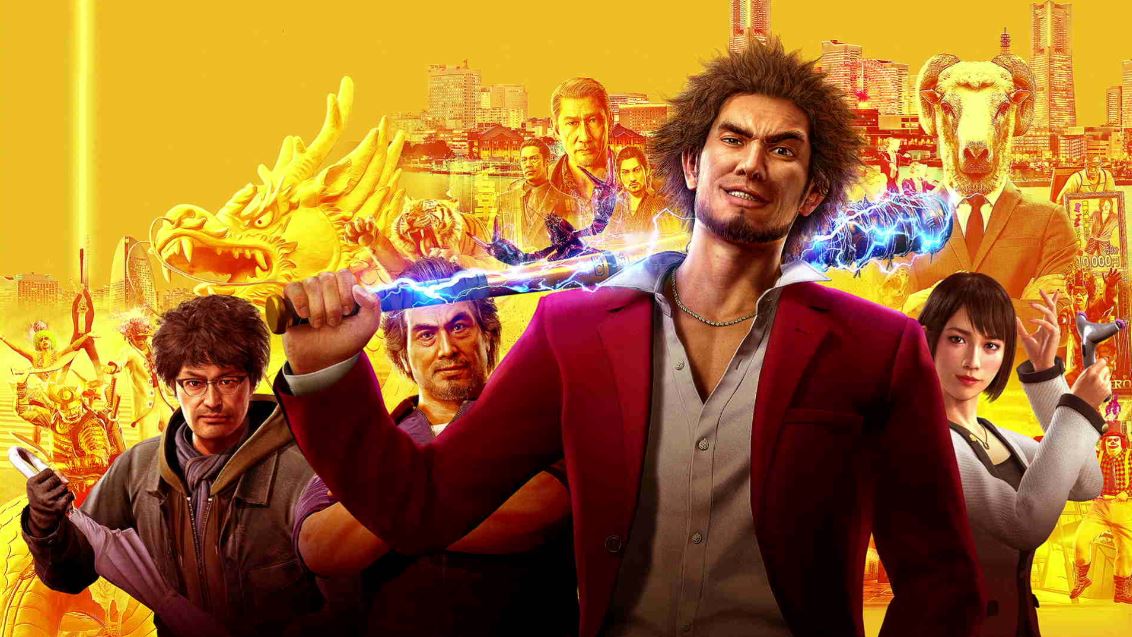
Yakuza: Like A Dragon PS4 Review – It’s fair to say that Yakuza is bigger now than it has ever been. What once was a cult franchise is now set to launch alongside a next-generation console (the Xbox Series S/X) and come to another on (the PS5) in March, offering up its experience as a next-gen showcase and hoping that it will encourage you to make the decision to drop a bunch of money on a new console.
While it is only on PS4 for now, I have to say that Yakuza: Like A Dragon is my first Yakuza game and it is a great jumping in point for new players, offering a gripping and multi-faceted story, an incredibly likeable new protagonist (Ichiban Kasuga), and ample things to do, with only a few stumbles and hitches along the way. It is the definition of a quality JRPG and a great introduction for the genre on the ninth generation of consoles.
Yakuza: Like A Dragon PS4 Review
A Fresh Start
With Kazuma Kiryu’s story concluded, Ryu Ga Gotoku Studio takes the opportunity with Yakuza: Like A Dragon to offer a fresh start and great entry point for players who haven’t touched a Yakuza game before.
In Like A Dragon you play as Ichiban Kasuga, a low ranking member of the Yakuza who takes the fall for his clan and confesses to a murder he did not commit in order to protect the larger organisation. After spending almost two decades in prison, Ichiban is set free in the year 2019 and finds that the family he was once a part of don’t acknowledge or want anything to do with him anymore.
After being left for dead, he is saved by a small group of homeless citizens, with one of them, Yu Nanba, asking Ichiban about a counterfeit Yen note he had in his jacket when he woke up in the new city of Ijincho. From there a story with multiple moving mechanisms, centring on corruption, the concept of working your way up society’s hierarchy, and the power and betrayal of connections and friends takes hold to create a gripping and intensely captivating narrative that never lets up.
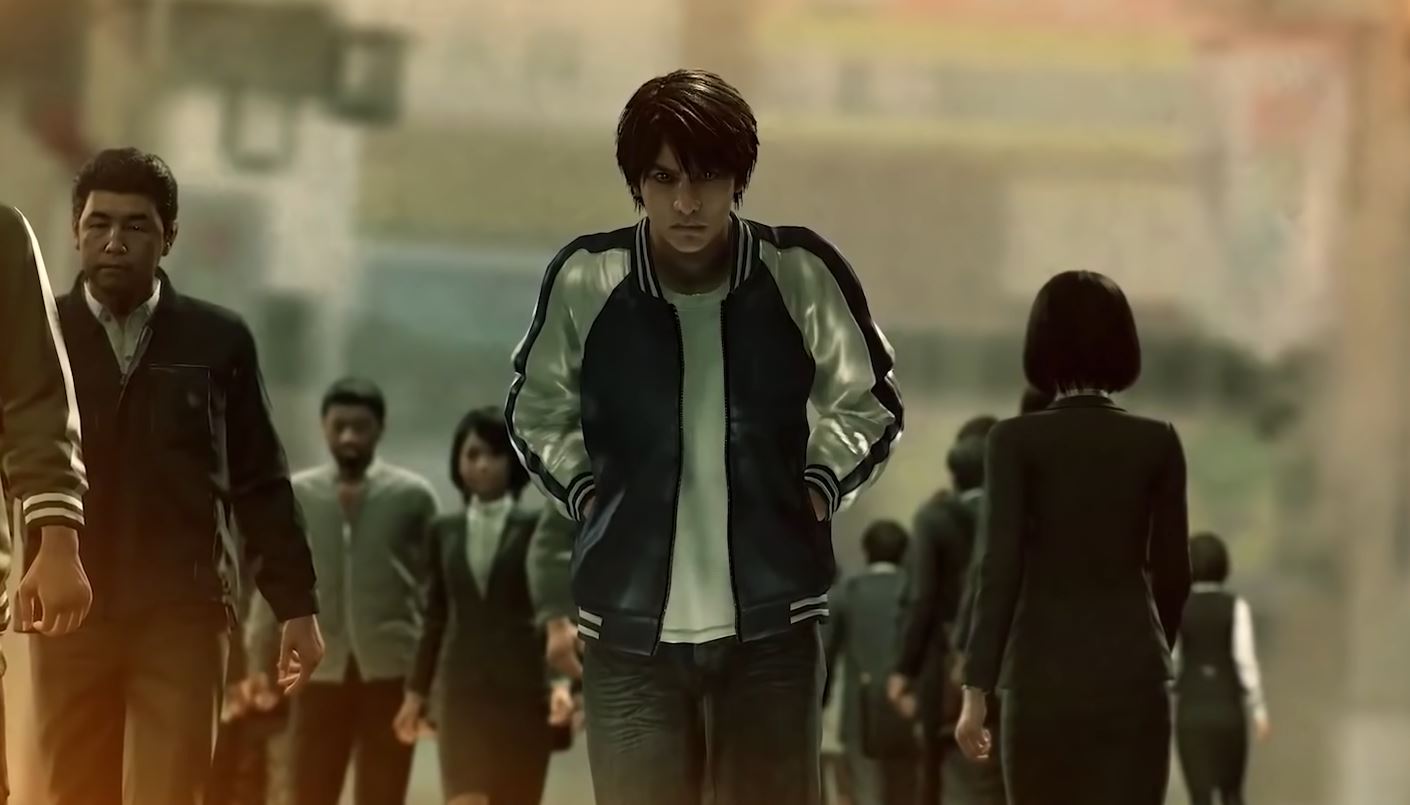
What I have just described is only a small fragment of what goes on in Yakuza: Like A Dragon, with a wealth of other characters joining Ichiban on his journey, such as Saeko Mukouda, a hostess, and Koichi Adachi, an ex-police officer who was fired weeks before he was due to take retirement. But, don’t think this story here is just about the city. Rest assured that Like A Dragon spends just as much time delving into Ichiban’s history, the family in which he came from, and the balancing of powerful forces, form the Yakuza, to political parties and more.
Whilst Yakuza: Like A Dragon is perfectly accessible to new players, those who have played the previous entries and have fallen in love with the series beforehand will have a lot to love in Like A Dragon from a narrative perspective. Whether it is the small hints and teases early on or larger surprises and reveals down the line, Yakuza: Like A Dragon is firmly rooted in the Japan that came before 2019 and the cities the Tojo clan left behind. The series’ past and its future here in Like A Dragon are firmly intertwined.
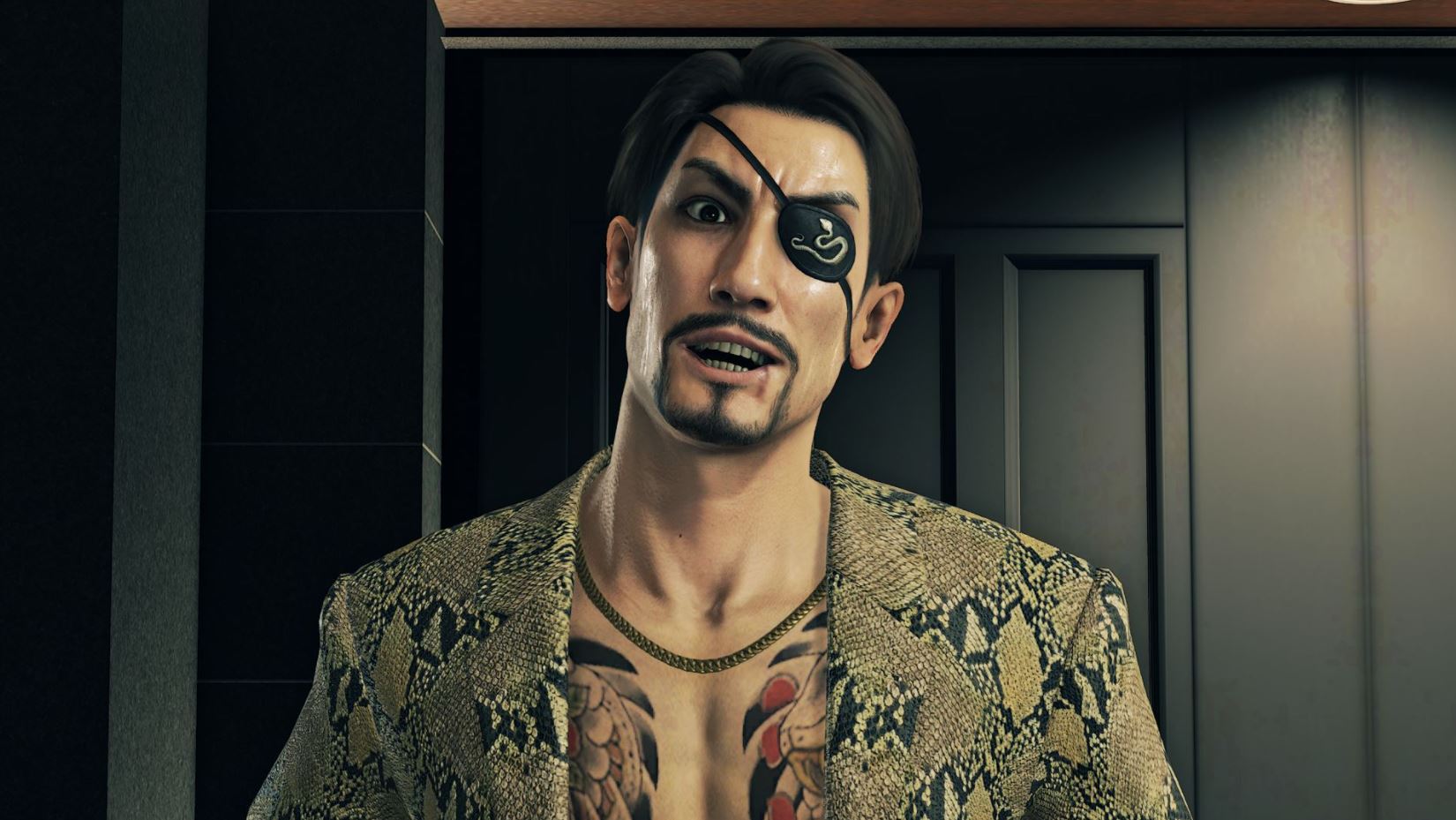
Changes, But For The Better
With this game being a shift for the Yakuza series, there are a lot of changes and alterations made to the traditional Yakuza formula that prior to release has been met with concerns. But, after playing this new version of Yakuza, I can safely say that this could easily become the future of the franchise. Although, I can’t directly compare them as I haven’t played any of the other games.
Let’s start off with Ichiban and the new cast of characters. Ichiban as a protagonist is excellent, perfectly balancing the seriousness you would expect from an ex-Yakuza member with lighthearted humor and constant Dragon Quest references (which made me smile every time).
What really makes Ichiban stand out though is how during the first 10 or so hours of the game you slowly see that he is just a regular guy who fell into the life of the Yakuza because he had nowhere to go. Whilst everyone around him is stern and making serious statements, he will interject with a humanising quip or an incredibly relatable anecdote.
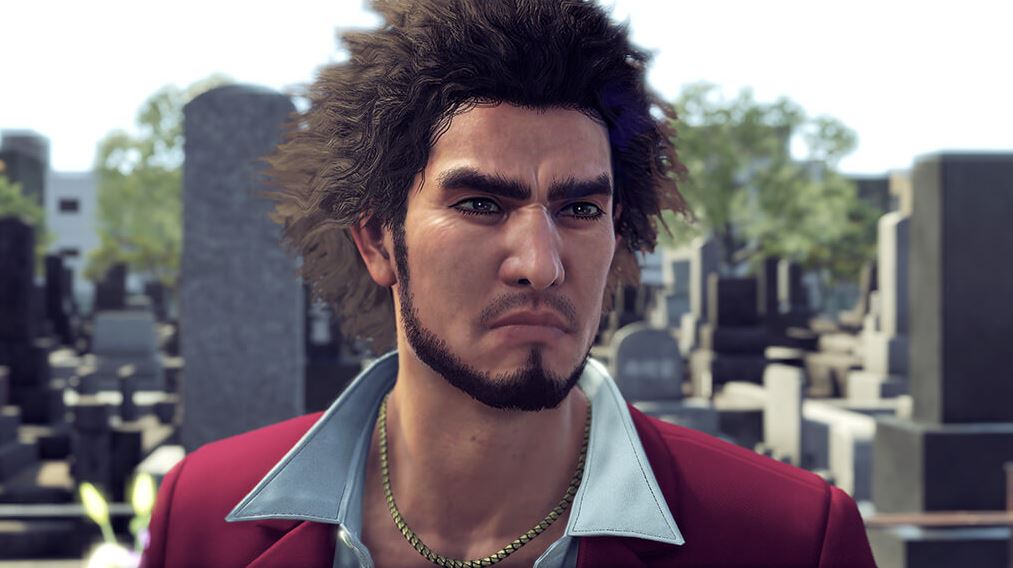
When it comes to the other characters that join Ichiban along the way, they are all regular people who find themselves in a plot bigger than they could have imagined. So, whilst none of them have the Yakuza glitz and glamour, they all are similarly relatable to Ichiban and have their own personal stories intertwined into the experience.
I particularly enjoyed sitting at the local bar, Survive, and drinking with them whilst an ongoing event in their life slowly progressed and I was asked to give my opinion on what they should do. These are great little moments that really help you build a bond with your party members and ensure you develop an interest in their lives.
Wait, did I say party members? Yep, I sure did, because Yakuza is now a turn-based JRPG and it works. It works incredibly well. Beforehand, Yakuza was known for its over-the-top action and ability to spontaneously pick up a bicycle and pummel a thug’s face with it. In theory, this wouldn’t be what you would expect from a turn-based game, but Ryu Ga Gotoku Studio has managed to translate the action of Yakuza in the past into its turn-based present.
Instead of enemies standing still in battles, Yakuza: Like A Dragon will have you, your party, and your foes all move around dynamically, dodging left and right, advancing on an enemy or retreating. Granted, no attacks are actually taking place, but this movement gives the game a great action feel that I haven’t seen done before in a JRPG. It really helps add to the pace of combat and not make it feel as slow as combat in the genre is known for.
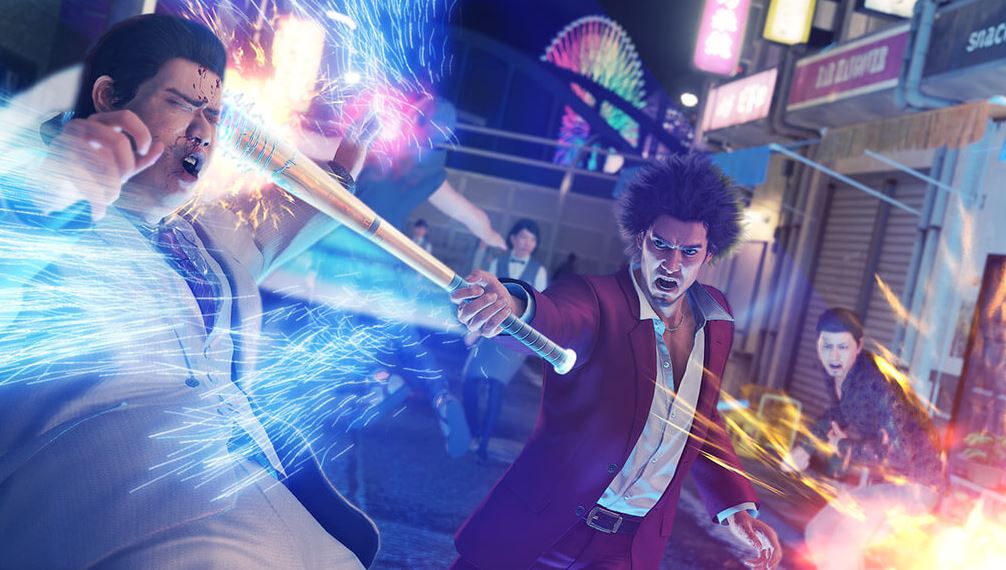
This action feeling and fast-paced tint on the turn-based combat is amplified by the fact that Ichiban and your party will automatically kick a bucket. They will also pick up a cone or wet floor sign when you choose to attack with hand-to-hand combat, switching out their base weapon for the extra damage from the environmental object.
On top of that, if an attack knocks an enemy down and you hit the attack button quick enough, you can capitalise on their vulnerability as they are laying around, dealing an extra chunk of damage. All of this helps to retain the fluid and spontaneity of the series’ previous combat systems, but also evolve it into a new era.
One final thing about battles is that the story features a number of key boss battles, which are accented by a thrilling soundtrack that really adds to the tone of the game and the monumental feeling of the battle taking place. I will definitely be listening to the soundtrack in the future.
A Party To Make Your Own
Within Like A Dragon’s combat system, variety is added in the form of skills which each member has access to, ranging from small flurries of punches to large sweeping swings that can hit and devastate multiple enemies at once, each costing an amount of MP. Each party member also has access to a range of defensive skills you would expect to find in a turn-based JRPG.
Even so, combat isn’t just “Nanba has this weapon” or “Ichiban can only perform these types of attacks.” No, combat can be customised even further with the new Job system.
Jobs take on the form of your class and each character has access to a certain pool of the 19 available jobs in the game. These range from brute and muscle-based jobs such as a Bodyguard or Brave, to more off-the-wall occupations, like a Fortune Teller or Street Musician, which offer similarly odd and off-the-wall attacks and animations.
Each of these jobs and the bonds you form with your party members will also help develop them, unlocking new skills and even powerful attacks that can deal a colossal amount of damage to an enemy. These attacks come with gorgeous cutscenes and animations where your party members join in on pummelling your foe, complete with some excellent visual effects to help amplify the power and force of the attack. You can find one that suits your playstyle and the role you want that party member to play.
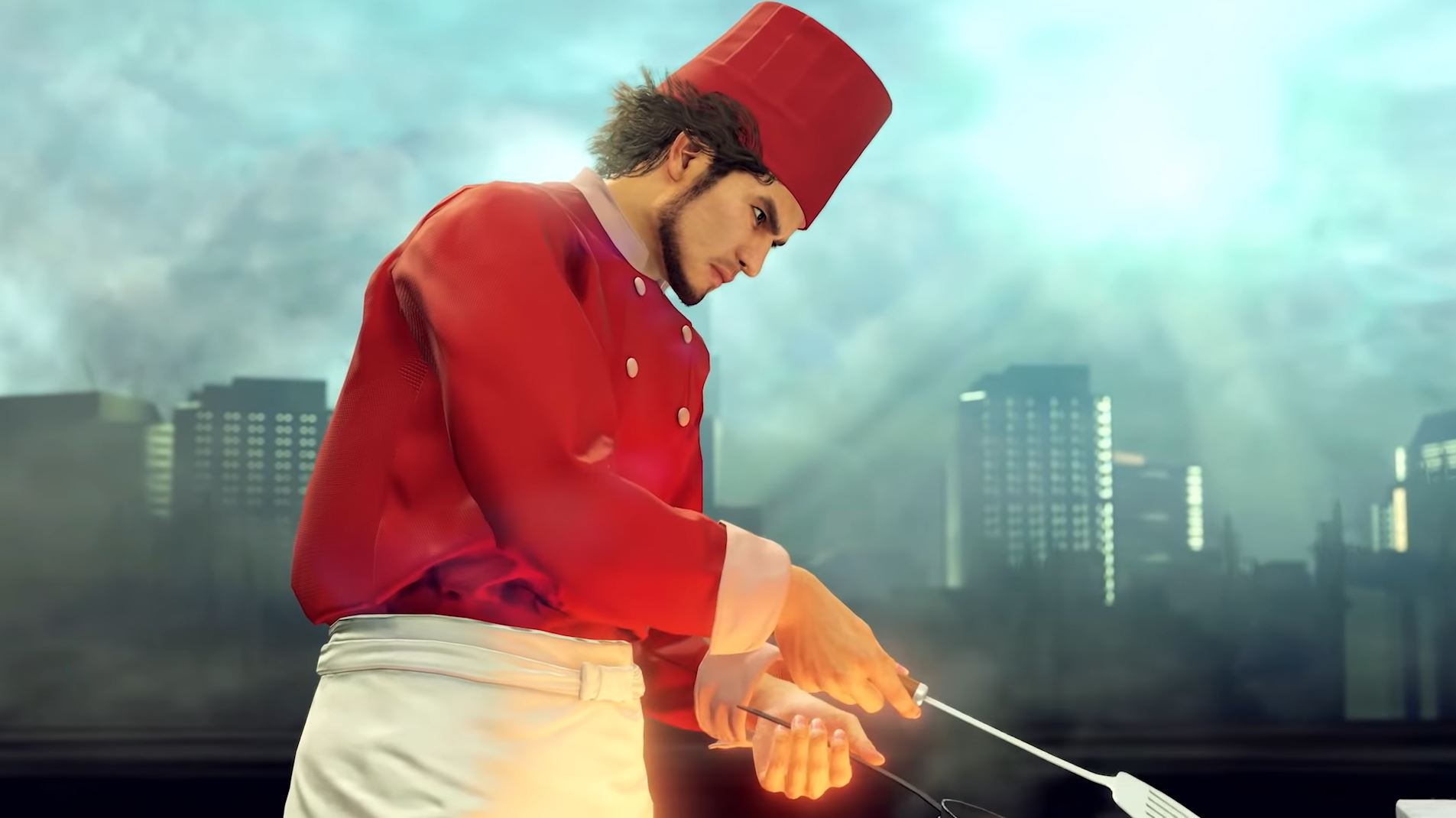
Combat and customisation has a bunch more, including a full weapon and armor crafting system which offer some energy-based weaponry, such as sparkling gauntlets that stun an enemy or a red burning sword that can enflame an opponent in one swift strike. Combine that with the ability to buy weapons from a variety of stores around Ijincho and you have a lot of options for how to equip yourself for a fight.
There is even a Summons system called Poundmates that allow you to call in a variety of characters you meet or interact with in the world to assist you in battle (for a price of course). All of these characters have wonderful backstories of their own and this is where Yakuza’s trademark hilarity is showcased, with the ability to call in ridiculous Summons, like a crawfish.
All of these are complete with absurd and over-the-top cutscenes that look gorgeous. Fans of the previous Yakuza games will also be happy with a few of these Poundmate intro cinematics.
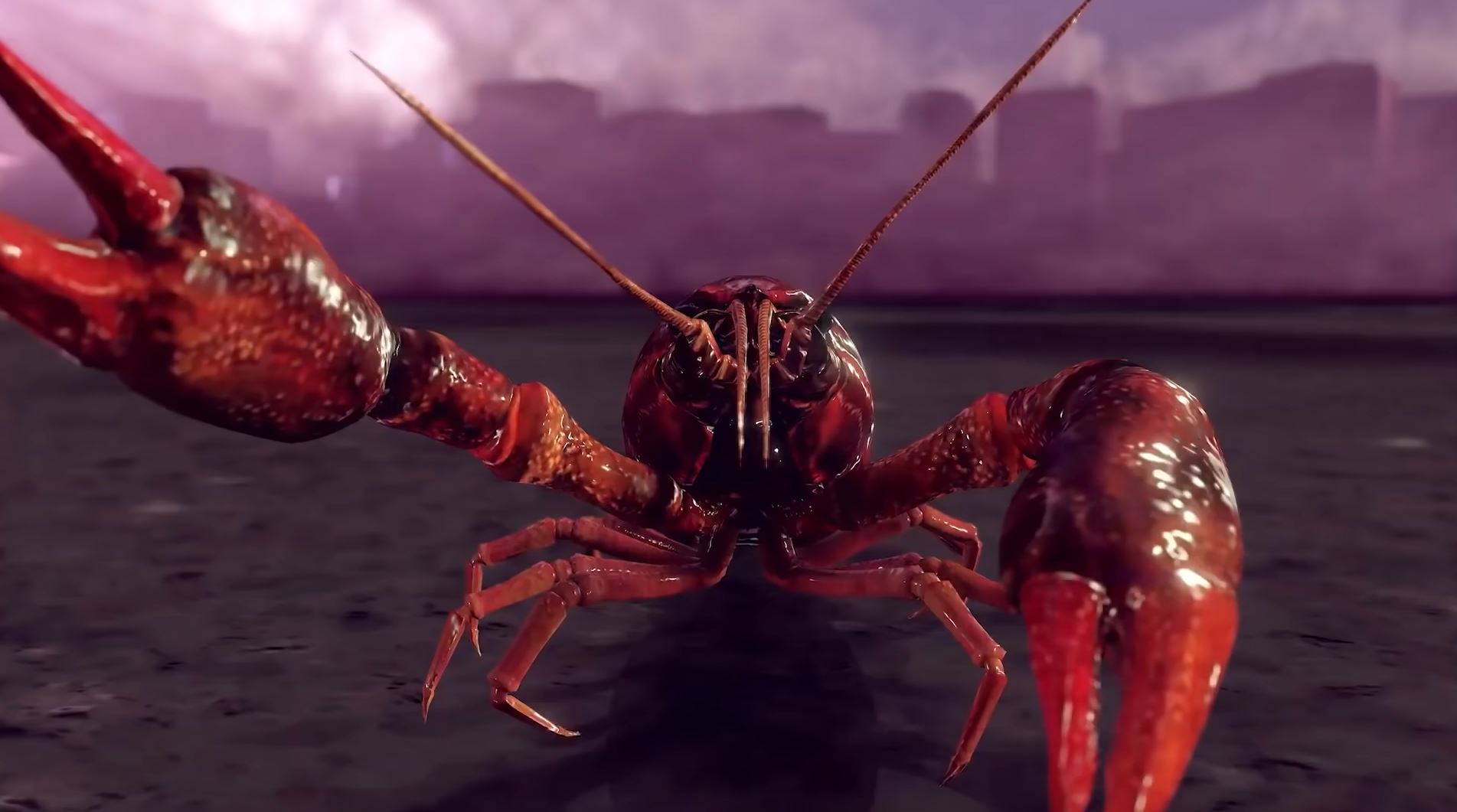
Finally, because I have to mention it, the game has its own Pokedex called a Sujidex, for the variety of Sujimon (enemies) you meet on your journey. It’s a fun spoof, with the Pokemon references and jabs you would expect, but it also has a worthwhile purpose, offering a database full of enemies, allowing you to keep track of weaknesses and strengths.
A City To Explore And Lose Yourself In
Ijincho as a city has a lot on offer when you don’t want to take part in the main story. There are a host of board games and arcades to play, including some of SEGA’s classic titles. Small mini-games like Karaoke are fun to try a few times and add touches of personality (such as the karaoke machine in-game looking like a crappy one you would find at any pub in the middle of nowhere in England).
Substories also return as your main side-quests, which are where the true silliness emerges, such as a quest which had me stumble into a room with a bunch of men engaging in Adult Baby role play and ending up drinking milk formula with them. So, rest easy that Like A Dragon certainly hasn’t changed in this department.
Meanwhile, Part-Time Hero quests have you acting as a superhero and going around saving civilians from thugs or delivering items to a specific individual or shop. They are repetitive, but they are enjoyable filler for when you want to take a break from Ichiban’s core quest.
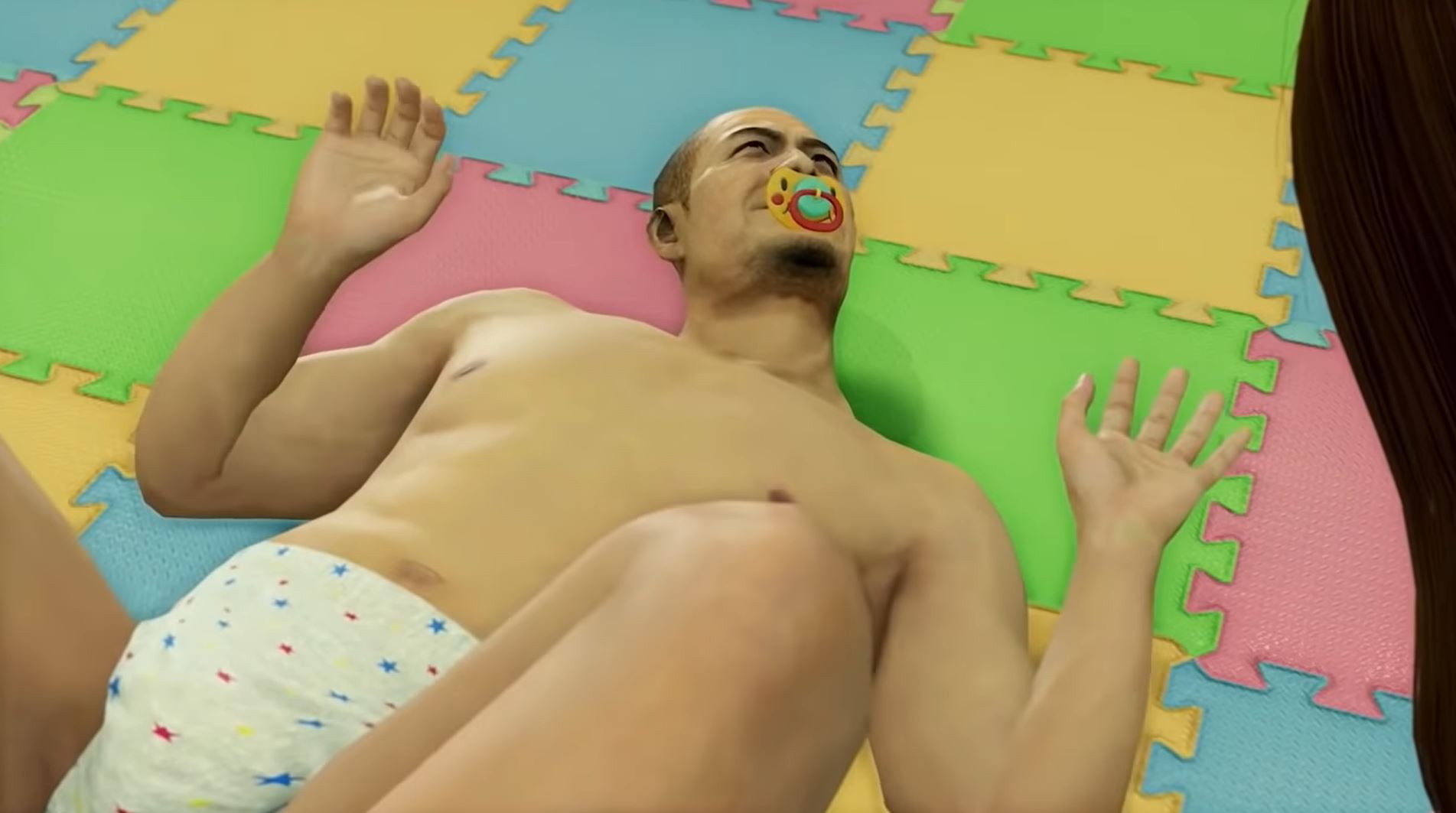
The two big new mini-games in Like A Dragon are Dragon Kart and Property management. Dragon Kart is for all intents and purposes Mario Kart, complete with coins, boost pads, item briefcases, and even a boost for accelerating just at the right time during the race’s countdown.
It is a fun way to lose some time and the quest tied to it is enjoyable to work your way through, especially for the prizes at the end and beating the ridiculously dressed opponents.
On the other hand, Property Management could quite literally be its own game. This sees you become the owner and leader of Ichiban Confections, a small company in Ijincho. After receiving a sizeable investment, you then need to spend that money wisely, improving your current retail outlets, restaurants, and stores, purchasing new ones, managing employee’s salaries, health, and well-being, all while ensuring that you make a sizeable amount of profit and increase your share price and ranking for your investor.
You will then have to engage in Shareholder meetings, which are a whole mini-game in themselves, with you rebutting questions they have, managing a pool of energy and having employees help you out in toning down their concerns and quarrels. It is a high-paced frantic affair and it adds a tangible sense of success and failure to your management and decisions.
This was easily my favourite of the new mini-games and I had a lot of fun dumping a couple of hours into improving my rank. Property Management is insanely detailed and in-depth and you could lose tens of hours in it alone if you wanted to.
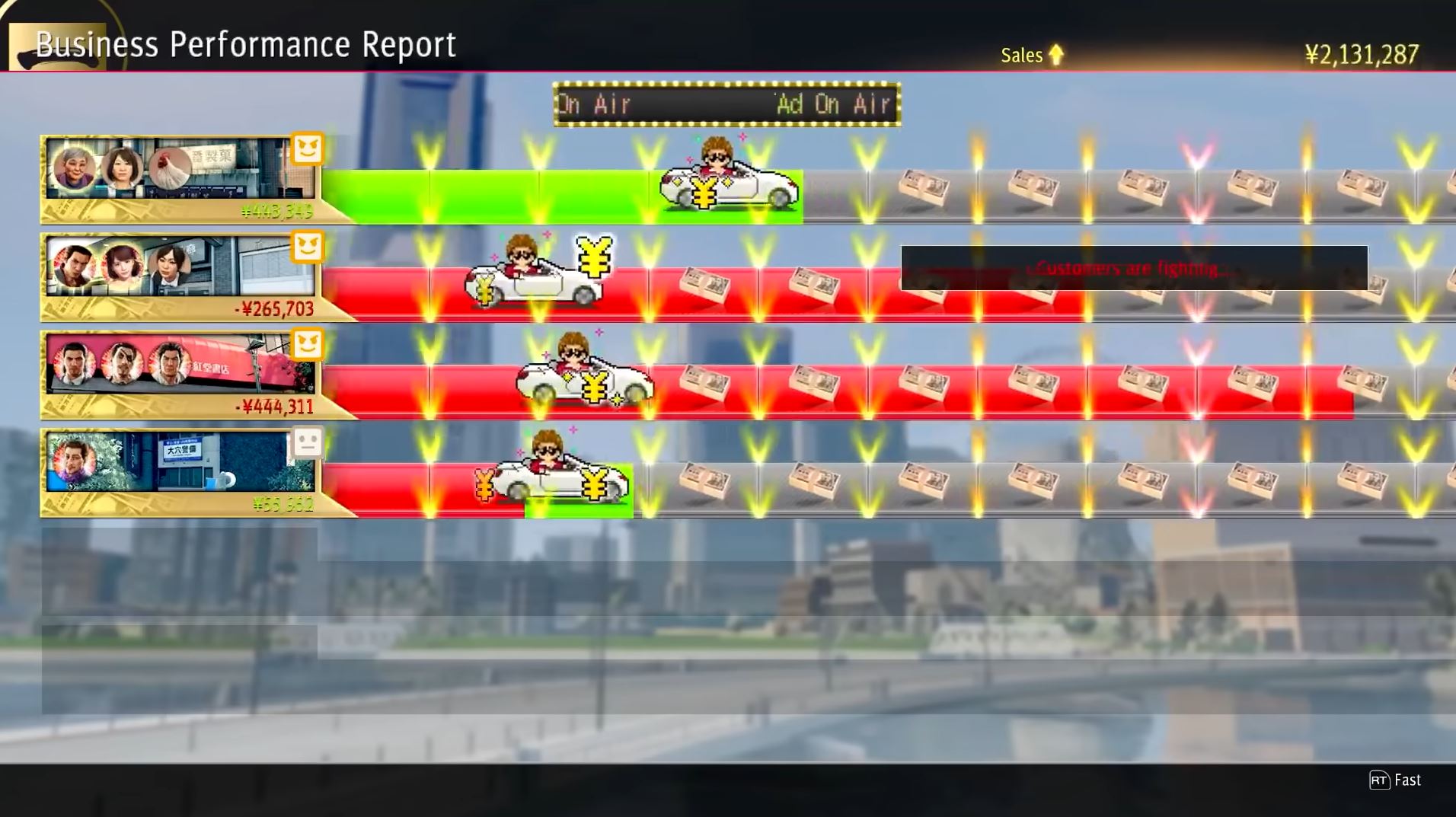
But, whilst all of these activities are great, they do form a part of the problem I had with Yakuza: Like A Dragon. Ijincho is a big city and the game could have really done with a better fast travel system, as right now you can only fast travel to locations where you have found a taxi. I would have much preferred being able to fast-travel to key buildings or locations.
On top of that, Dragon Kart and Property Management both have their own options on the pause menu, yet when pressing them you are only greeted with a stats screen. They really should have taken you to the mini-game, rather than forcing you to run all the way across the map to the one location it is accessible from.
My favourite moments in Like A Dragon were almost exclusive to the main story missions and they were easily where I wanted to spend my time. However, there were at least three points in the story (past all the introductory bits and bobs) where I was forced to engage in these side-activities or grind low-level enemies to earn XP because I was too weak to take on the story boss.
Two times I had to grind enemies scattered around the city killing group by group, over and over again to get enough XP to level up two-three times in-order to stand any chance against the next story boss. I even spent three hours playing the Home Run content so I could get a piece of gear that increased my XP gain.
Still, even with that equipped, I still to spend multiple hours bored out of my mind grinding. This is mostly because there was no way I could get a sizeable amount of XP in a quick fashion, with missions and Substories not granting any modicum of it.
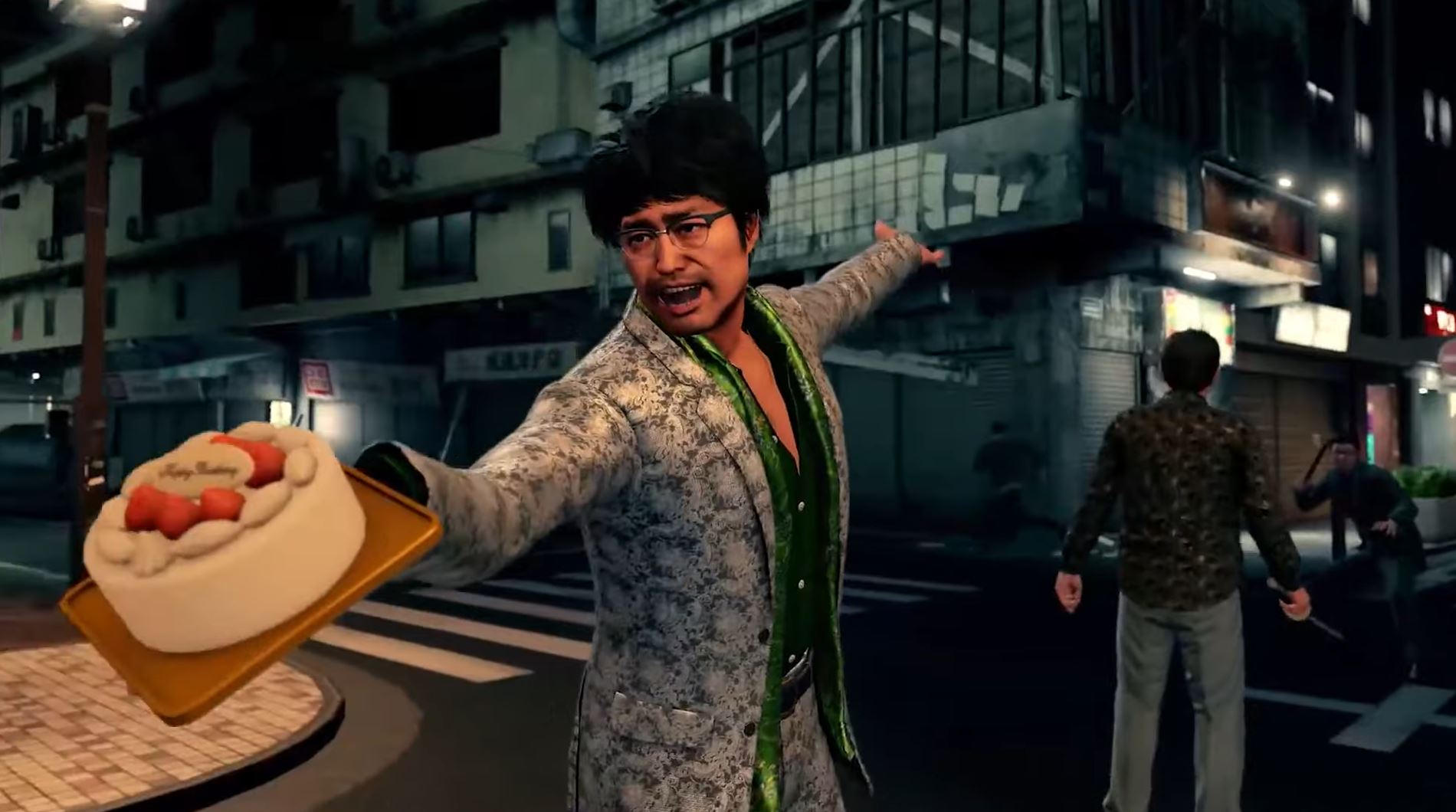
Another point in the game also arbitrarily halts pretty much your entire story progress by asking you to accumulate three million yen. When this happened I only had a measly 425,000. Luckily, some of the Part-Time Hero quests award big chunks of yen, in the millions. But, for players who don’t spot that they may be left dumbfounded at how they are supposed to find and earn that money, because the game doesn’t tell you clearly.
Yakuza: Like A Dragon’s best moments are in its story and there were multiple times when playing that I wished it would have funnelled me into that narrative, rather than force me to take part in everything outside of it. Without any difficulty options either, I had no choice but to grind my way to boredom.
The Next Generation Of JRPGs Is Off To An Impressive Start
Despite a few flaws and frustrations, Yakuza: Like A Dragon has shown me why people adore this franchise and the characters that inhabit its world. Ichiban is a fantastic and relatable frontman and the plot that unravels had me intensely focused on the screen to the point where I just wanted to see the next revelation or twist and eventually see how it all wrapped up.
The changes made to combat are an evolution for the franchise and show flexibility for the JRPG genre as a whole, with action-infused elements and a faster pace injected into the moment-to-moment swings and punches. The sheer amount of stuff Ijincho has to offer is impressive and new mini-games like Dragon Kart and Property Management are engaging, deep, and fun.
I have so, so much more left to do in Yakuza: Like A Dragon and I can’t wait to uncover and explore every bit of the world. Like A Dragon has created a new Yakuza fan out of me and I expect it will create many more when it releases on both PS4 and PS5, leading to a future for Yakuza that is hopefully as bright as its past is remembered.
Yakuza: Like A Dragon releases for PS4 on November 10, 2020, and for PS5 on March 2, 2021.
Review copy provided by publisher.
Score
8.5
The Final Word
Yakuza: Like A Dragon is an impressive and quality JRPG that successfully acts as a jumping in-point for new fans and also ties itself to the series’ past in exciting and engaging ways. The turn-based combat has been infused with some mechanics that help retain the action and over-the-top hilarity the series is known for. Mini-games once again shine and there is a lot packed into Ijincho. Like A Dragon paves the way for a bright future for the franchise.




